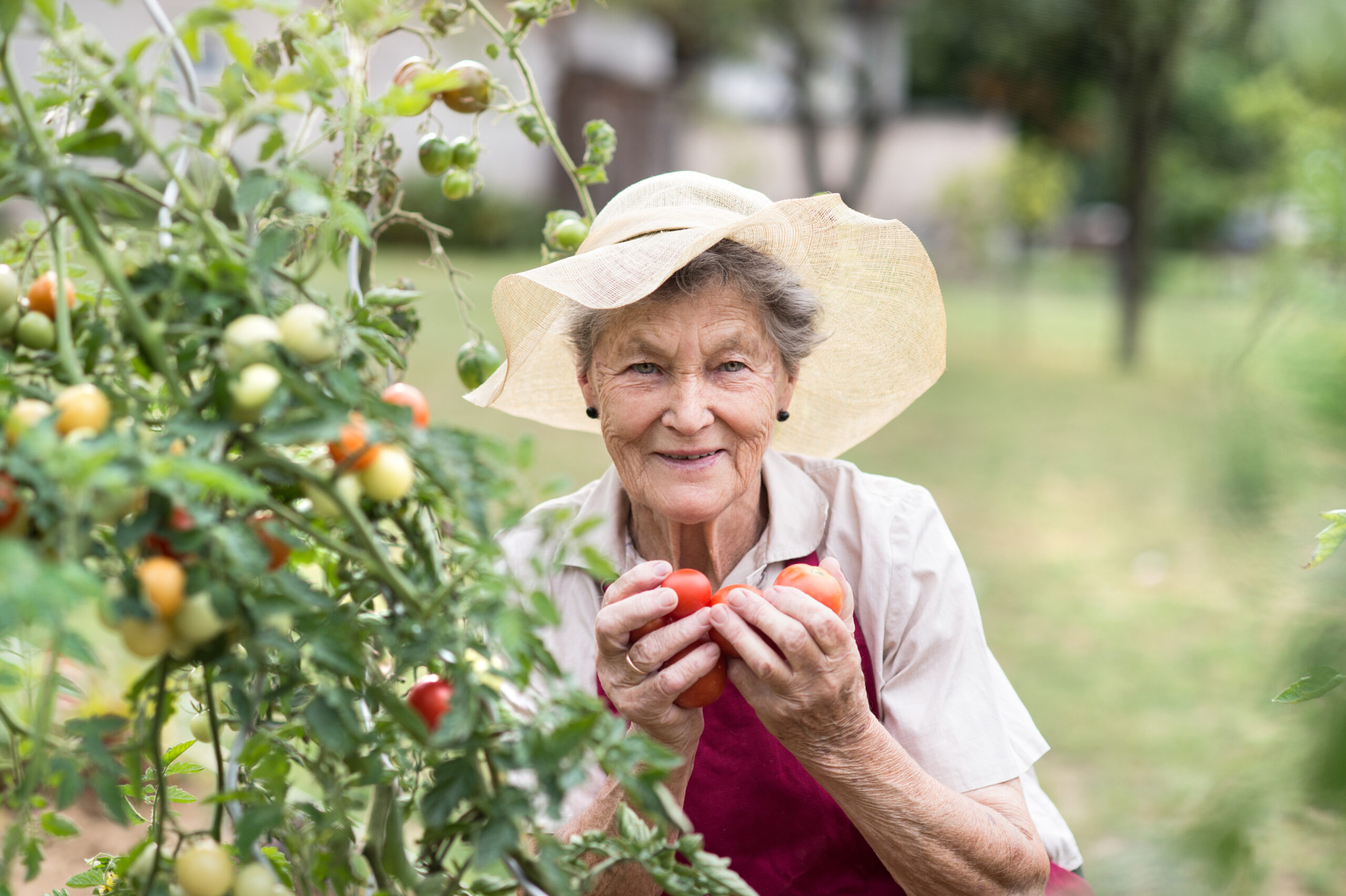Organic Gardening For beginners
Grown on your own, homegrown fruits and vegetables are fresh and
bursting with flavor. 
There is no better way to grow your own food than by gardening. It can
help you produce tons of different fruits and vegetables while also
being a hobby for those who love plants.
Organic gardening not only provides a way to ensure that the food you
eat is fresh, but it also assures your family of getting plenty of vitamins.
Once you’ve picked a fruit from your garden, there’s nothing left to do
but eat it or compost with the rest of your other food scraps.
Who is Organic Gardening for?
Anyone can start their own organic garden, even if they are just
tinkering at it. It’s not necessarily for the experienced gardener or those
with a lot of money to invest, but it is possible with little effort.
Let’s try and answer some basic questions so you can get started.
What is Organic Gardening?
Organic Gardening, also known as “organic farming,” refers to the
process of growing plants without using synthetic chemicals or
fertilizers in order for them not to be contaminated with toxins that are
harmful. The term was coined by Sir Albert Howard who first used it
during a speech at Oxford University.
It’s an increasingly popular choice for those who want to take control
over their food supply and be more in touch with nature.
Why Should I Garden Organically?
Many people choose to garden organically for a number of reasons.
Some people want the satisfaction that comes with growing their own
food, while others are concerned about what chemicals may be in
‘store-bought’ produce. Organic gardening can also help you save
money on your grocery bill and provide healthier options when it’s time
to eat!
How do I get Started with an Organic garden?
Getting started with an organic garden is quite simple. First, you’ll
need to decide on what type of garden you want.
Do you have a large backyard? Perhaps an organic vegetable or fruit
tree would be best for your space. If not, there are plenty other options
such as planting herbs in pots and containers that can go indoors
during the winter months.
If you opt for an indoor herb garden, then you’ll need to find a sunny
spot in your home. You can also use grow lights if you have the space
and want an all-year round garden. For most beginners, the best thing
to do is start small.
If you have a backyard, try planting some vegetables and herbs in pots
or raised beds on your patio.
If not then find an area of ground that gets at least six hours sun per
day (morning light can be too harsh for plants). Once you have found a
spot, remove any weeds and lay down some newspaper or cardboard
to suppress the grass.
If you have no ground then try planting in containers on your porch or
balcony; just make sure they get plenty of sun!
If this is not an option either for space reasons, then all is not lost. What
you can do is start your plants indoors and then transplant them
outside once they are big enough.
If you have a small garden, the best thing to do is start with vegetables
like tomatoes or peppers that can be grown in containers on patios.
Best Types of Soil
So, what are the best soil types for budding organic farmers? Well,
there are a few.
If you have the space and want to grow vegetables or fruit trees in your
backyard then loamy soil is best for this type of garden as its rich with
nutrients that plants need such nitrogen-rich organic matter from
composting materials like leaves.
What are the Best Plants to Grow in my Backyard or Front Yard?
Naturally this depends on the climate of your location.
If you’re in a warmer climate, then citrus trees and avocados are great
choices. In cooler climates like the northeast US or Canada, apples can
be grown successfully.
You’ll also want to consider how much space is available for your plants
as well.
Is it Difficult to Grow Plants Without Chemicals?
This is a question many people ask themselves. The answer is no, it’s
not difficult to grow plants without chemicals. It does take more time
and effort than using chemical fertilizers or pesticides but the benefits
are worth this extra work.
You’ll need a lot of patience because you can’t just water your garden
with a herbicide like Roundup that kills everything in its path.
You should start with organic potting mix or compost that is free of
chemicals such as pesticides.
We recommend using a mixture of compost, peat moss and
vermiculite. You can use coffee grounds to help your garden flourish as
well.
